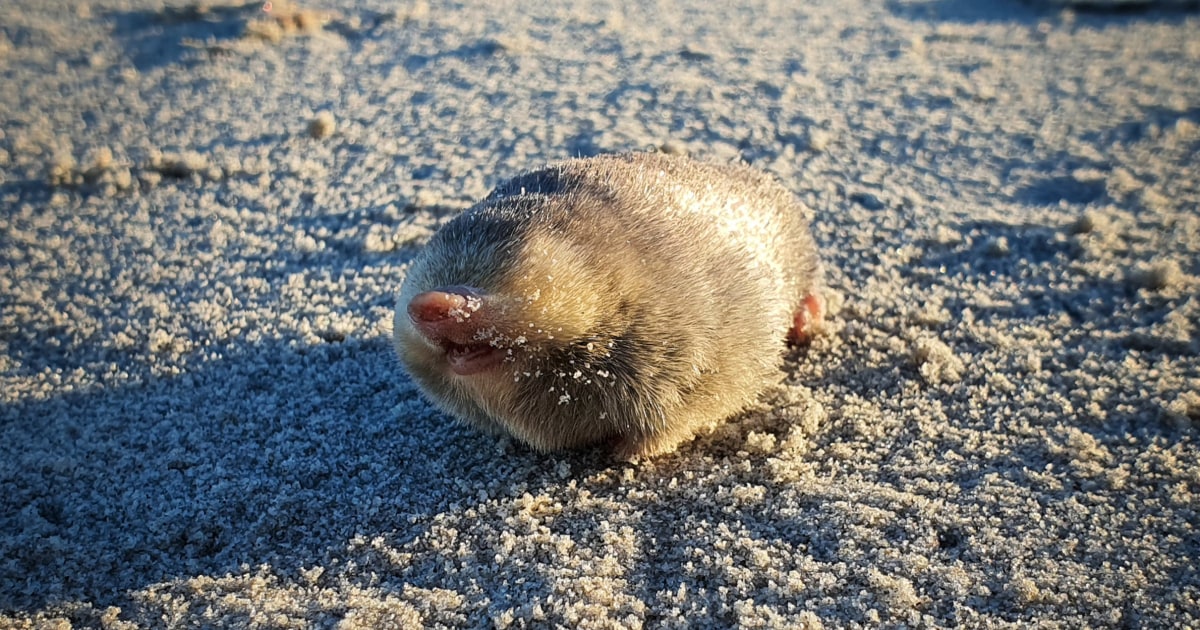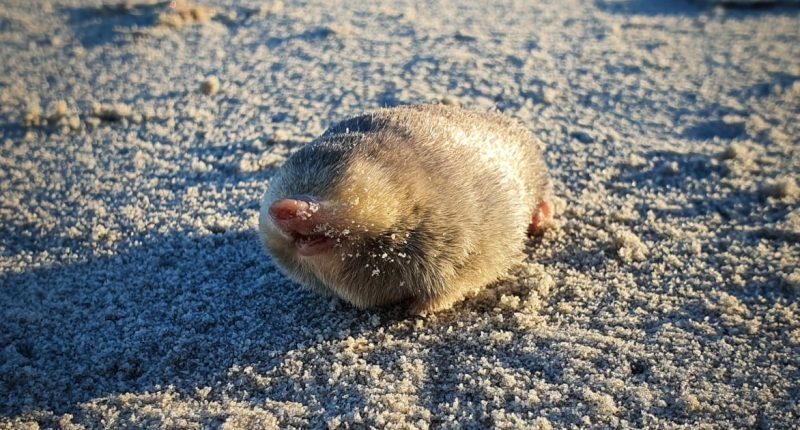
Scientists are making a mountain out of a mole hill after finding a rare breed of sightless burrowing mammal not seen for the better part of a century.
Researchers spent two years searching the sand hills of South Africa for a critically endangered blind mole that navigates burrows using its sharp hearing and sensitivity to vibrations, the mole hunt team said in a press release this week.
De Winton’s golden mole was last seen 87 years ago on Port Nolloth beach, a mile long sandy stretch of South Africa’s northwest coast. Its survival is threatened by diamond mining in the coastal sands of its habitat, according to the IUCN Red List.
The team of scientists from the Endangered Wildlife Trust (EWT) and the University of Pretoria that rediscovered the mole hope their findings will help turn Port Nolloth beach into a protected area.
“The search for De Winton’s golden mole was not easy by any means,” Christina Biggs, a manager for the campaign which helped find De Winton’s mole, said in the release. “They left no sandhill unturned and now it’s possible to protect the areas where these threatened and rare moles live.”
The scientists searched up to 11 miles of dune habitat a day to find the mole, Esther Matthew, a senior field officer with the EWT, said in the release.
The “golden” part of the mole’s name comes from the iridescent appearance of its fur coat, which secretes oil to make it easier for the mole to almost “swim” through sand.
The rediscovery of the mole is part of a campaign to search for lost species launched in 2017 by the nature charity Global Wildlife Conservation, which has been renamed Re:Wild.
The project won a Guinness World Record in 2020 for the number of species it is looking for: Over 2000 species of animals, plants and fungi that have not been seen in at least 10 years.
De Winton’s golden mole was ranked number 11 on Re:Wild’s “25 Most Wanted” species list. The list also includes Attenborough’s Long-Beaked echidna, a bizarre-looking egg laying mammal that researchers recently rediscovered in Indonesia.
Border collies trained to sniff out golden moles helped the researchers find the trails the creatures left behind, the researchers said. The burrows were made more visible by rainfall.
The scientists also relied heavily on a new technique called environmental DNA (eDNA), which locates animals using the skin cells, hair and other bodily excretions they shed when they move through an environment, Re:Wild said in a press release.
Without eDNA, finding De Winton’s golden mole would be extremely difficult. The creature rarely leaves its largely inaccessible burrows and can detect movements above ground through vibrations, Re: Wild said.
Cobus Theron, a senior conservation manager for EWT that helped find the mole, said he never lost hope that De Winton’s golden mole was still out there.
“I was convinced it would just take the right detection method, the proper timing, and a team passionate about finding it,” Theron said in the press release. “Now not only have we solved the riddle, but we have tapped into this eDNA frontier where there is a huge amount of opportunity not only for moles, but for other lost or imperiled species.”
Aside from De Winton’s golden mole, Re: Wild’s “Search for Lost Species” has also led to the rediscovery of an endangered climbing yellow salamander in Guatemala, a miniature fanged deer in Vietnam and a rainbow-hued crab in Sierra Leone.
Source: | This article originally belongs to Nbcnews.com










